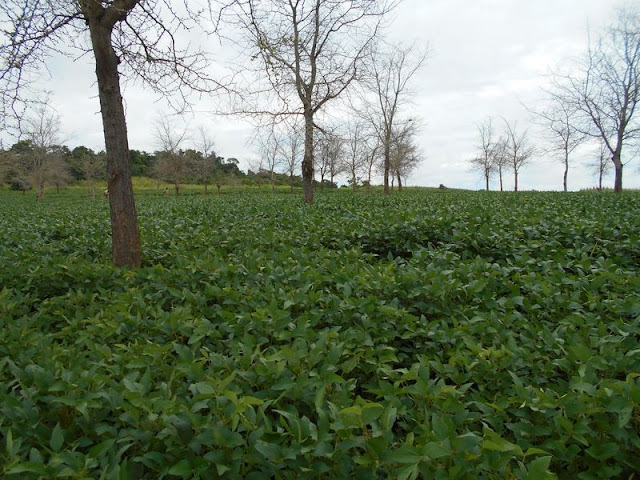Chipata trades ventures into winter maize production
HAVING a strong agricultural production unit doesn’t just ease the teaching of practical subjects like agriculture; it also helps skills training colleges to contribute significantly to national food security.
Colleges that embrace
agriculture in its broadest sense, also remain self-reliant since they are able
to generate income from the sale of agro-produce.
With this realization,
Chipata Trades Training Institute (CTTI) has ventured into winter maize production.
In June this year, the institute
planted vitamin A orange maize on a one Lima field through irrigation farming and
expects to harvest between 9,000 and 11,000 fresh cobs of maize this October.
This is because it employed
conservation agricultural techniques of minimum soil disturbance and crop
residue retention, coupled with good crop management.
In the next production
phase, CTTI expects to expand the area of production to 3 hectares.
During the institute’s
first ever winter maize field day, Eastern Province permanent secretary
Veronica Mwiche commended Chipata Trades Training Institute for highlighting
agriculture as a key driver of economic development.
She said Government had started delivering modern equipment; machinery, and hand tools to the training
institution in order to improve the teaching and learning environment.
The permanent secretary
said this was being done with a view of achieving the much needed development
for the province through economic diversification by way of promoting
agriculture.
“The Government has also
bought a tractor and as soon as we receive the other accessories, they will be
delivered to Chipata Trades Training Institute because the institute has shown
the willingness to improve productivity as we have all seen,” she said.
The permanent secretary
said this in a speech delivered on her behalf by the Chipata district
administrative officer Kapembwa Sikazwe.
She urged other cooperating
partners to also support the training institution.
At the same event,
Chipata District Agricultural Coordinator Phillimon Lungu urged that
agriculture be taken seriously since it had the potential to eradicate poverty
and eliminate hunger.
“Agriculture is a very
important sector in the livelihoods of all Zambians and Chipata in particular,
because it employs over 70 percent of the total workforce… either directly or
indirectly…and therefore, it is important that we take agriculture seriously in
order to contribute significantly to the reduction of poverty and also
elimination of hunger in the country,” he said.
Earlier, Chipata Trades
Board chairperson Anderson Zulu said the board would endeavor to support
sustainable initiatives at all times.
“For us, this field day
is so special. This is October, and we are harvesting fresh maize. It is for
this reason that we cherish the support that we receive and continue to receive
from our cooperating partners, stakeholders, and our hard working members of
staff; our desire is to hold an event such as this one regularly,” he said.
Meanwhile, Chipata Trades
vice Principal Christopher Zulu observed that general agriculture if given the
necessary support, would become the backbone of the institution.
“The institute is
offering different courses in engineering; construction, and business studies.
General agriculture is one of the courses that we are offering and we feel that
if it is well supported, it can become the backbone of Chipata Trades Training
Institute,” he said.
Mr Zulu urged farmers,
women, and youth cooperatives in the province to venture in winter maize
production saying it was more profitable than rain-fed agriculture and could
cushion the high mealie meal prices.
“Chipata Trades will be ready
to give any technical support to these groups…I believe that technical know-how
is very important; you cannot run a cooperative without the necessary skills,” he
said.
Mr Zulu also disclosed
that the institution was engaged in livestock keeping other than winter maize
production.
He said the institution
was also in the process of constructing a fish pond since it wanted to
participate in fish farming.
“The institute has a
piggery which has more than 120 pigs; a poultry which houses more than 600
chickens. We also have started preparing a fish pond since we want to start
fish farming…Allow me to mention that during the 2019/2020 farming season, we
harvested more than 300 by 50 Kg bags of white maize,” said Mr Zulu.
In the wake of COVID-19,
one of the biggest challenges that learning institutions are facing is to
sustain themselves especially with regard to providing enough for students in
the case of those offering boarding facilities, and also generating income for
the smooth running of the institutions.
It is therefore
gratifying to see CTTI take practical steps to avoid this problem as it is
through such initiatives that sufficient resources are also generated to offset
costs, and undertake infrastructural developments of any kind within the learning
institutions.




Comments
Post a Comment